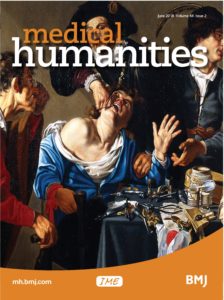
In “Before Narrative: Episodic Reading and Representations of Chronic Pain,” an article in our June special issue on “Pain and its Paradoxes”, Sara Wasson counterpoises fragmentary, incomplete and episodic forms of writing to teleogenetic narratives that make the experience of chronic pain coherent and, in doing so, risk marginalising the voices of those whose experience does not or cannot be encompassed by this narrative strategy. Teleogenetic narratives, Wasson argues, create conventions that make specific experiences with chronic pain unrecognisable because they do not conform to expected narratives, thus risking disbelief and delegitimation. Drawing on affect theory to emphasise the emergent quality of chronic pain, Wasson explores a form of reading that pays attention to pauses and gaps and offers a term for the repeated marginalisation faced by those who meet with the failure to communicate the singularity of their experience of pain: “the temporality of thwared connection.” Wasson reads two scenes from Lous Heshusius’ hybrid academic analysis and autobiography, Inside Chronic Pain: An Intimate and Critical Account, to show how reading episodically complements analyses that privilege teleogenetic readings by pointing to the labour involved in communication and by suggesting how incompleteness and unhappy endings generate the potential for activist power.
Hear the author’s own description of the article by clicking on the audio below.
Read the full article on the Medical Humanities Journal website.